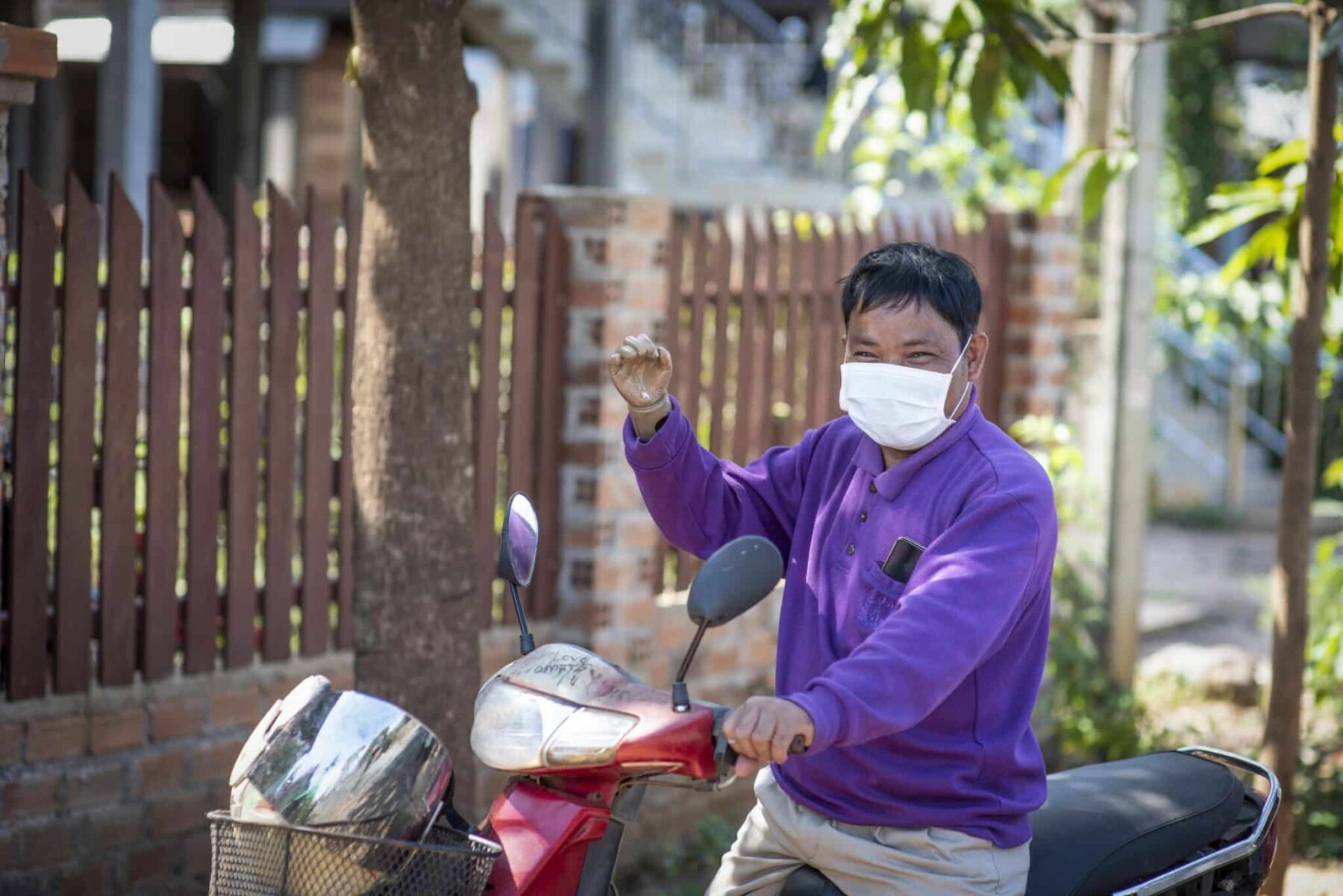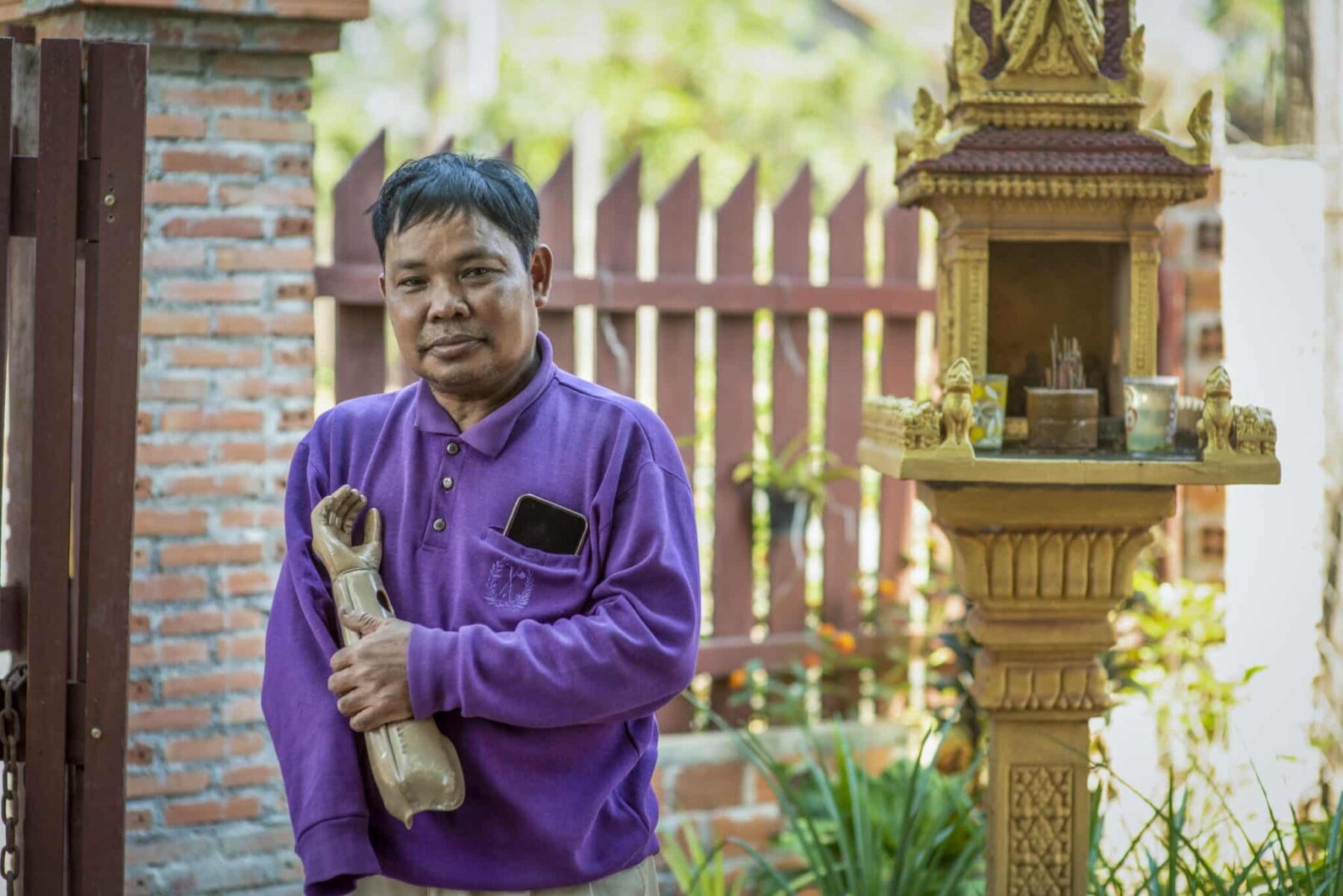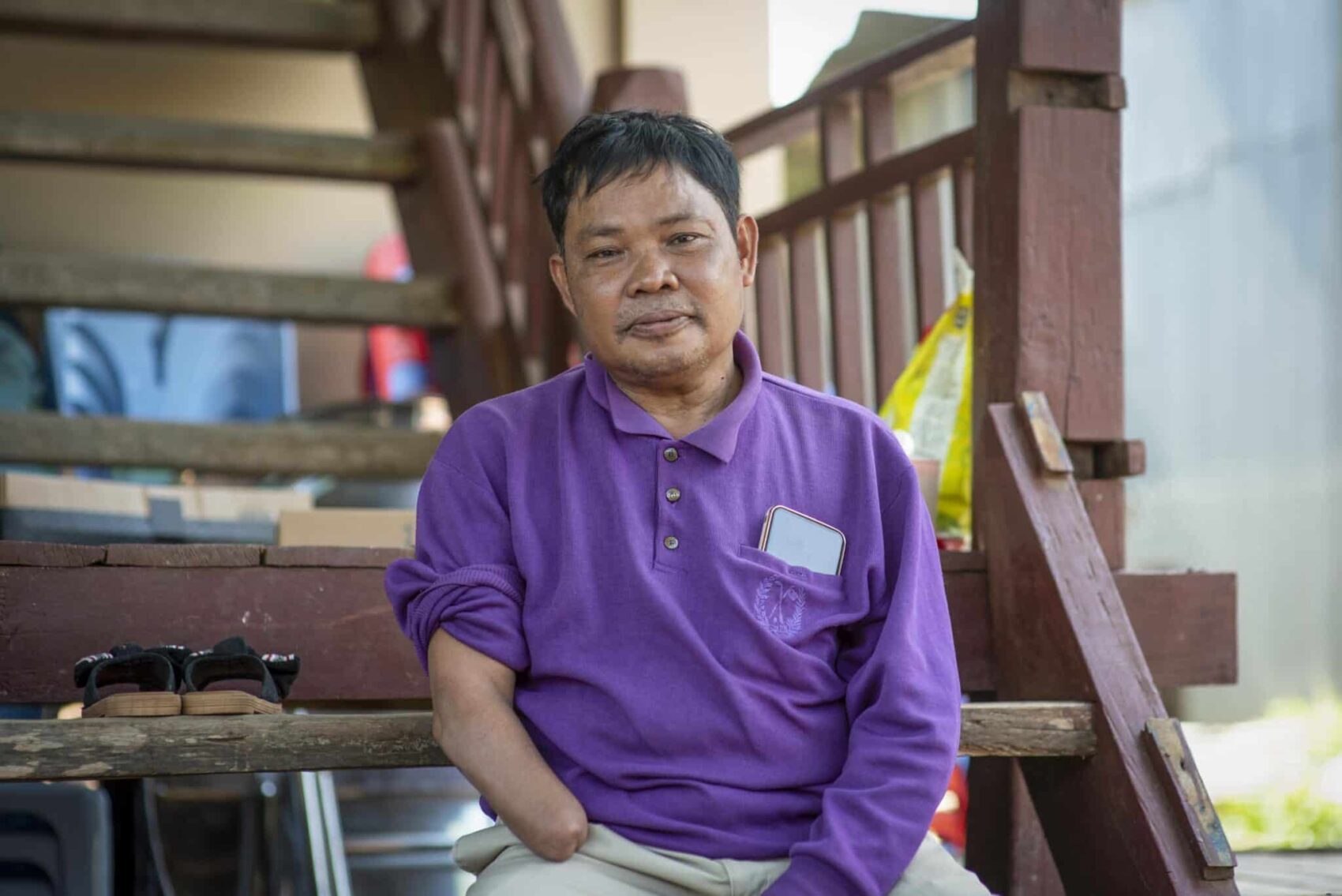Chan’s Story: Surviving a Landmine but Moving Forward
Chan, a dedicated schoolteacher from Cambodia, has spent over three decades educating the next generation. But his life was forever altered in 1999 when a landmine explosion took his right hand and left him with lasting trauma. Below, Chan shares his story in his own words, reflecting on the incident, his recovery, and his ongoing fears about the dangers that still exist in his community.
Chan’s story shows the long-lasting impact of landmines on survivors and their families. His resilience is remarkable, but it also demonstrates the importance of APOPO’s work in clearing landmines in Cambodia, helping to prevent future tragedies in communities like his.
“My name is Pan Chan, and I’m 52 years old. I’ve been a secondary school teacher for 32 years now. The school I teach at, Chea Sim Tbeng Meanchey, isn’t far from my home. I live with my wife, who suffers from mental illness, so I’m the one who takes care of the family.

We have five children — four boys and one girl. All of them go to school, and my four sons study in Phnom Penh. My eldest son is pursuing a master’s degree and is studying to become a doctor. The second one studies mathematics, the third studies English language arts, and the fourth studies Christianity.
I faced the incident in 1999. It happened while I was working in the rice field. The mine was hidden inside a rice stack. When I pulled and carried the rice stack, the mine exploded, and I was injured. It was probably put there by the Khmer Rouge. That day, there were six landmine explosions, and I was the only one who survived. Mines were planted everywhere — in haystacks, rice stacks, even in shoes. We also came across many improvised mines.
I remember everything clearly because I stayed conscious after the explosion. My right hand was badly injured, and it bled a lot. I tied a string around the wound to slow the bleeding, but my face turned black from the blast. There were people working in the field, but no one was close by, and I had to find help on my own. By the time I reached the hospital, I fainted.

At the provincial hospital, the doctor told me my right hand needed to be amputated. The surgery cost $75. I received an artificial hand in 2003, but after losing my right hand, life became more difficult. I had to learn to write with my left hand, which was challenging after using my right hand for so many years. I couldn’t wash clothes by myself, and simple tasks like picking things up became very hard.
After the incident, I’ve lived in fear of landmines. I do my best to educate my students about the dangers they pose. I’ve seen relatives try to diffuse mines themselves and get injured or killed. One relative lost their arms and legs, and the amputation wasn’t successful. The infection set in, and they died. This happened after the war had ended.
When I heard that APOPO would provide me with a new hand, I was very happy. Their work brings hope to people like me. I know that the landmine that injured me could have been prevented if more fields had been cleared sooner. Still, I’m grateful for the help I’ve received and hope that fewer people will have to experience what I went through.”

